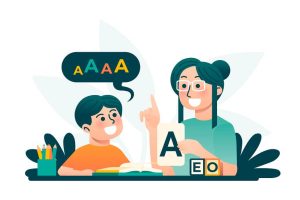Pros and Cons of Delaying Kindergarten Education

Picture this: You’re faced with the decision of when to start your child’s kindergarten journey. It’s a significant choice that can shape their early educational experience. In this exploration of the pros and cons of delaying kindergarten education, we’ll break down the potential advantages and drawbacks of holding off on that first day of school. On one hand, delaying entry might provide extra time for emotional and social development. On the other hand, it could mean missing out on valuable learning opportunities. By weighing these factors, parents can make informed decisions about what’s best for their child. Let’s delve into the simple aspects of this decision-making process, ensuring clarity on the potential benefits of delaying kindergarten as well as the challenges related to it.
Understanding kindergarten education&
The foundation of a child’s formal education is laid in the nurturing environment of kindergarten education. This introductory phase marks the commencement of structured learning, where children embark on a journey that encompasses academic, social, and emotional development. During kindergarten, educators focus on more than just teaching letters and numbers; they aim to cultivate a love for learning and foster essential life skills.
Delaying Kindergarten Education: A Closer Look&
The decision to start formal education is a significant choice for parents, and one consideration that often arises is the prospect of delaying kindergarten education. Let’s delve into the nuances of this decision, exploring both the potential advantages and disadvantages it may hold for young learners.
Advantages of Delaying Kindergarten&
Here are some advantages of starting kindergarten late to consider:
- Extra Time for Emotional and Social Development:
- Development of Self-Regulation Skills:
- Increased Confidence and Foundation:
- Greater Maturity for Classroom Dynamics:
- Enhanced Emotional Resilience:
- Reduced Pressure on Academic Performance:
- Customised Learning Readiness:
- Improved Long-Term Learning Outcomes:
Delaying kindergarten education provides children with additional time for emotional and social maturation. This extended period before entering a structured learning environment can contribute to enhanced readiness for social interactions within the classroom.
The extra time before starting kindergarten allows children to develop better self-regulation skills. This includes the ability to focus, follow instructions, and engage in classroom activities with increased independence and confidence.
Delaying entry can result in children entering kindergarten with heightened confidence and a more robust foundation for learning. This additional preparation time can positively impact a child’s initial experiences in formal education.
Delaying entry often means children enter kindergarten with greater maturity, enabling them to navigate the structured learning environment more effectively. This maturity can contribute to a smoother transition and adaptation to classroom dynamics.
Additional time before starting formal education allows for the development of emotional resilience. Children who have experienced a bit more of life before entering kindergarten may be better equipped to handle challenges and setbacks.
A delayed start can alleviate the pressure on young children to perform academically at an early age. This reduction in academic pressure may foster a more positive attitude towards learning and exploration.
Delaying entry enables parents and educators to tailor the learning environment to the child’s specific readiness. This customisation can lead to a more personalised and effective learning experience.
The advantages of delayed entry can extend into the long term, with studies suggesting that children who start school later may exhibit improved academic performance in later years.
Disadvantages of Starting Kindergarten Late&
Here are some disadvantages of starting kindergarten late to consider:
- Delayed Academic Exposure:
- Social Challenges:
- Integration into the Class Community:
- Potential for Feeling “Out of Sync”:
- Limited Exposure to Structured Learning:
One of the primary concerns with delaying kindergarten is the potential for delayed academic exposure. The kindergarten curriculum introduces fundamental concepts crucial for future learning. Starting late might mean a delayed start to foundational literacy and numeracy skills.
Socialisation is a key aspect of early education, and starting kindergarten late may pose challenges in this regard. Building friendships, adapting to the classroom environment, and participating in group activities may be more challenging for children who enter later.
Delayed entry might affect a child’s seamless integration into the class community. Adjusting to the social dynamics and routines established by the time other children have already settled in may present hurdles for those entering late.
Starting kindergarten later could make a child feel out of sync with their peers, especially if they are significantly older than the rest of the class. This age difference may impact their social interactions and sense of belonging.
Delaying entry results in less exposure to the structured learning environment that kindergarten provides. This limited exposure may affect a child’s ability to adapt to formal educational settings.
Crucial Role of Parents&
In weighing the advantages and disadvantages of delaying kindergarten education, parents find themselves at a crossroads, tasked with making a decision that aligns with the unique needs of their child. The potential benefits of enhanced social and emotional development must be considered alongside the drawbacks of delayed academic exposure and potential social challenges. Ultimately, the decision should prioritise the well-being and readiness of the child. Parents play a pivotal role in observing and understanding their child’s developmental milestones, ensuring that the chosen approach supports the child’s growth and learning.
Finally, it is essential to remember that the objectives of kindergarten extend far beyond the first day of kindergarten. It is a continuum of growth and learning, and the choices made during these foundational years set the stage for a lifetime of educational success. We at Billabong High International School understand that whether a child starts kindergarten on time or with a bit of extra preparation, the overarching goal remains constant, to foster a love for learning and establish the foundation for a bright and fulfilling future. Contact us today to find more!








